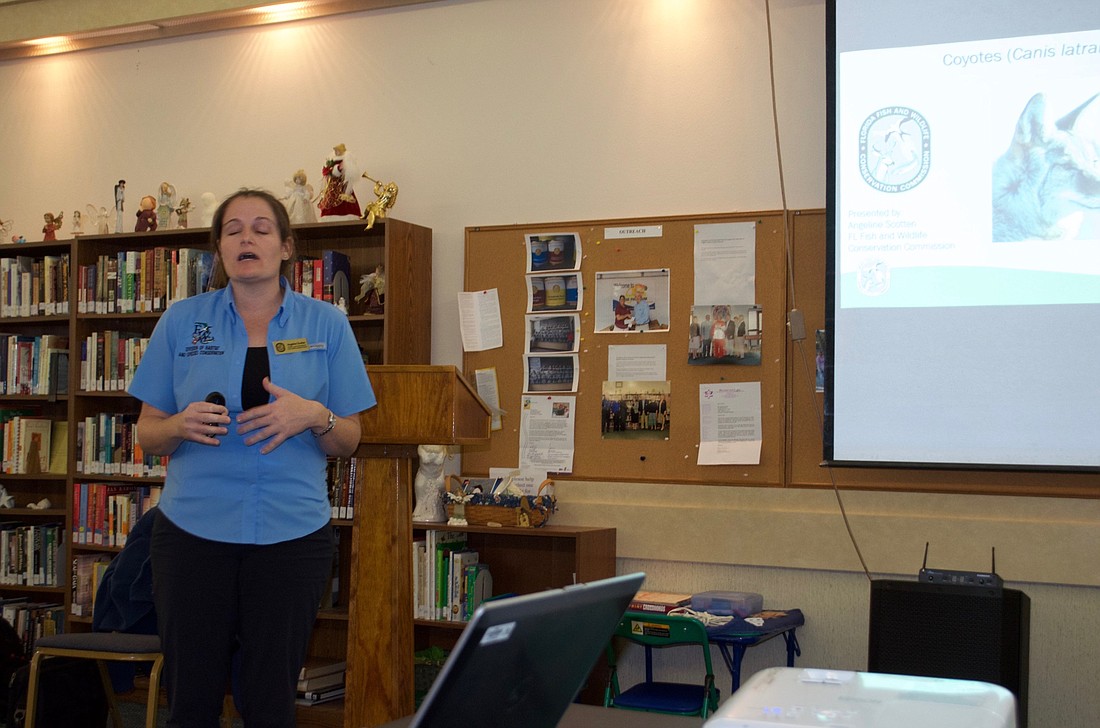- April 30, 2024
-
-
Loading

Loading

Longboat Key will continue with plans to educate residents and visitors about living with coyotes and has no plans to relocate or eradicate the four-legged predators that have raised the angst level of some residents since their first appearance in July.
As part of its educational outreach to residents who weren't in town last summer, the town again sponsored a workshop on coyotes and what to do about them with the Florida Fish and Wildlife Conservation Commission. About a dozen people sat in on the first session Monday morning, held at All Angels Episcopal Church. A second was planned later in the day at Christ Church.
Police on Longboat Key say there have been dozens of sightings but no aggressive acts reported. The same holds true for police on Anna Maria Island to the north and in mainland Sarasota to the east.
“They are one of the most intelligent wildlife species,” said FWC wildlife assistance biologist Angeline Scotten, who conducted the workshop.
Coyotes are timid around humans, but because food sources tend to be more plentiful in built-up areas, coyotes can be found in most major U.S. cities, she said.
“Their territory in urban areas is three miles, but in a natural environment it is 15 miles,” she said.
She said if an animal is trapped, it must be relocated within the same county. Town officials said recently that private landowners are free to make their own trapping arrangements on their own property, but the experts on hand Monday said that's not always as easy as it sounds. An animal must be relocated within the same county in which it was trapped and the fee is often about $450.
Plus, Scotten said, the animal is likely to return, anyway.
“Eradication efforts in other states have failed,” she said. “Coyotes are notoriously hard to catch.”
Scotten, who gave a similar talk with town residents in late August, said the animal is generally not dangerous. In Florida, there are an average of 3.5 coyote attacks each year, compared with 1,000 visits to emergency rooms each year by people who have been attacked by a dog.
As evidence of the widespread population of coyotes and concern among residents in Florida, Scotten has presented similar workshops in Hernando County, Brevard County, Anna Maria Island, Orlando, Fort Myers, Lakeland and beyond. The advice is almost always identical to that given to Longboaters.
To keep the animal out of backyards and off private property, Scotten said it’s important to pick up all pet food left outside including bird feeders. Also, pick up any fruit that has fallen from citrus trees and make sure garbage cans are securely shut.
“Keep your cats indoors and keep your dogs on leashes,” she said.
Coyotes' natural prey are small animals.
In last summer's workshop, FWC experts theorized Longboat could be home to possibly four coyotes. The animal mates for life, and the average littler size is six pups.